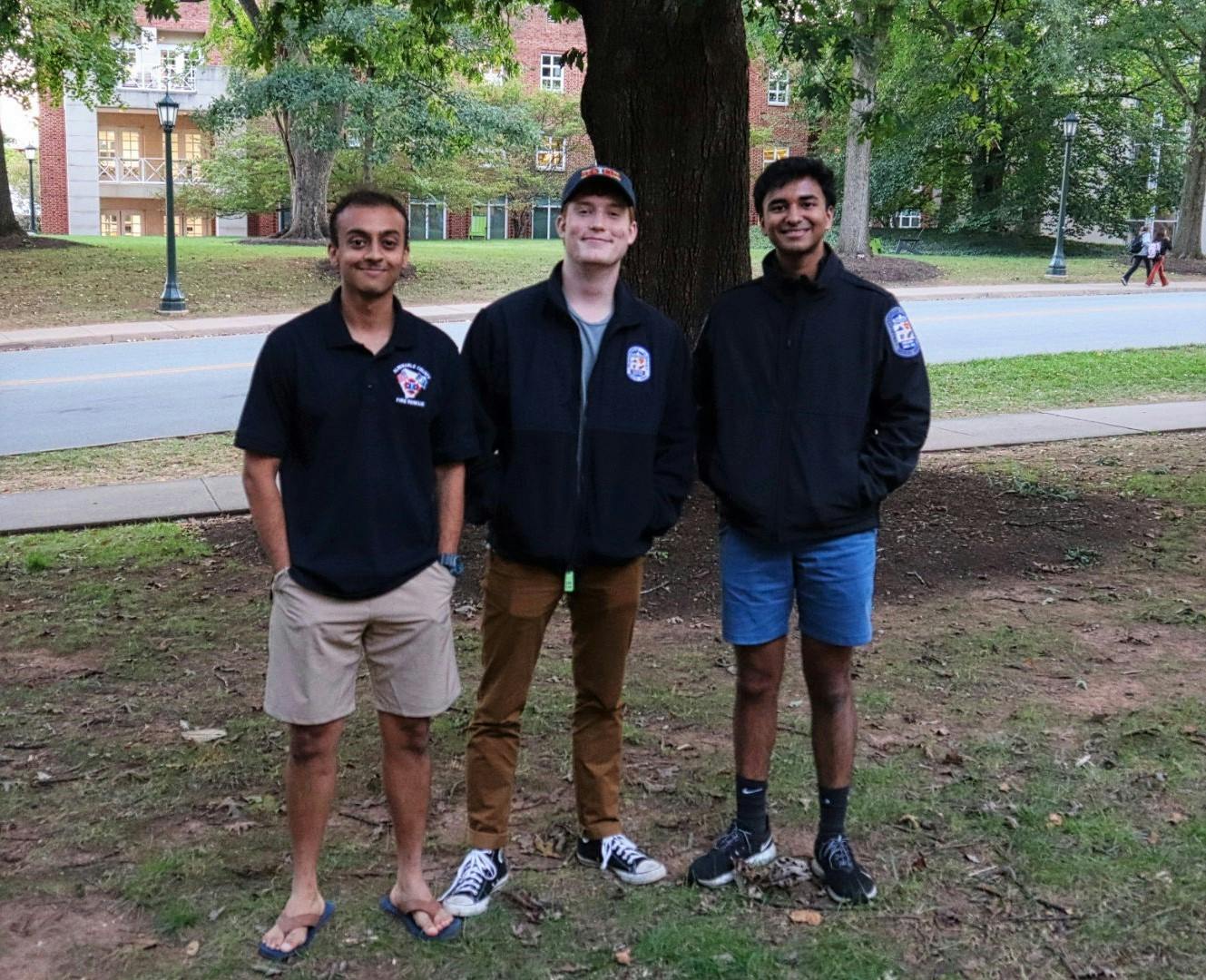H&S
Students, alumni impact community as part-time first responders
Students are playing a role across Charlottesville’s 15 rescue squads

Medical students, nursing students and undergraduate students at the University play a crucial role in the operations of local rescue squads and fire departments.
Photo by Aleyna Buyukaksakal | The Cavalier Daily
By Sydney Newburn
October 4, 2021
Many students at the University serve as first responders in addition to being full-time students, working and training tirelessly to keep the community safe. Medical students, nursing students and students across the University play a crucial role in the operations of local rescue squads and fire departments.
Albemarle County is home to 15 rescue organizations made up of volunteer and career first responders. The rescue squads include fire stations, EMT services and hazmat teams — combined, the 15 squads respond to over
16,000 calls per year.
Kostas Alibertis, chief of the Western Albemarle Rescue Squad and a 1985 alumnus, started at the station in 1985 while an undergraduate student at the University. At the time, Alibertis was one of a handful of University students who volunteered at the station. 30 years later, students play a major role in the squad, and more importantly, in the greater Charlottesville community.
The Western Albemarle Rescue Squad is located in Crozet and provides advanced life support to residents of Albemarle County. The squad consists of over 100 volunteers, about 25 percent of whom are current students or recent graduates from the University, Alibertis said. The group’s average call volume each year is around 2,000.
{snip}
Walker Smith, a Class of 2020 and 2021 alumnus, commutes from his job as an engineer in Northern Virginia to Charlottesville on weekends to volunteer as a firefighter with the Seminole Trail Volunteer Fire Department. Smith joined the fire station as an undergraduate at the University. A coworker in his undergraduate research lab would tell stories of his nights at the fire station, which sparked Smith’s interest.
Similar to that of the Western Albemarle Rescue Squad, firefighting at Seminole Trail Volunteer Fire Department is a serious commitment. Volunteers are expected to complete one 12-hour shift a week and one 48-hour shift every five weeks. The total time commitment is approximately 100 hours per month, Smith said.
{snip}
That's 1,200 hours per year.
